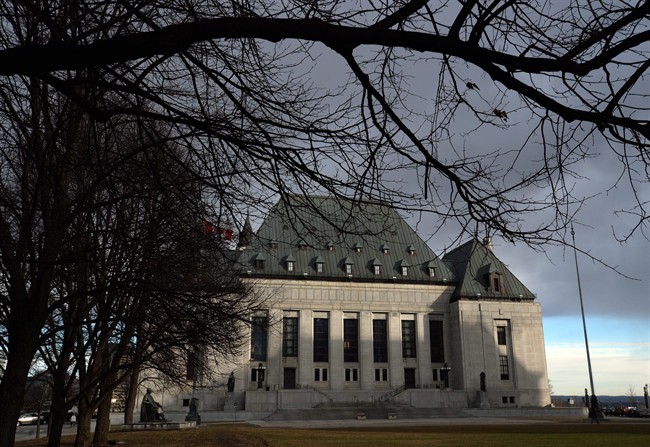One of the leading organizations pushing for physician-assisted dying across Canada says any extension on the looming deadline set by the Supreme Court of Canada last winter is unnecessary and potentially harmful.

Wanda Morris, CEO of Dying with Dignity, said she was disheartened by reports that the newly elected Liberal government is considering seeking such an extension.
“Stalling is wrong and unnecessary,” Morris said.
The justices of the Supreme Court ruled last February that it should no longer be a crime for a doctor to help certain patients end their lives, giving Ottawa and the provinces exactly one year to figure out a framework for the newly established right to an assisted death. After months of inaction, the Conservative government appointed a three-person panel in the summer to study the issue.
READ MORE: Will Quebec set the standard for physician-assisted death?
A senior Liberal source confirmed to Global News on Wednesday that it’s unlikely any federal bill would be drafted by February, and the government could ask the Supreme Court for several additional months in order to pass a law next spring.
Prime minister-designate Justin Trudeau has stated that he believes “one year is hardly enough” to sort out the many legal and ethical complexities surrounding doctor-assisted death.

Get breaking National news
“Kudos to (the Liberals) for wanting to get it right, but I think they are not aware of all the work that’s already been done,” Morris said, noting that Ottawa’s main task is to amend the Criminal Code to protect doctors from prosecution should they agree to help a patient die.
The Supreme Court ruled that only people suffering from a “grievous and irremediable medical condition” that causes “intolerable” suffering could take advantage of doctor-assisted dying. Given how broad that is, Morris acknowledged, the federal government may also wish to clarify the definition of “grievous,” “irremediable” and “intolerable.”
But any changes to regulation for physicians and any new laws linked to the delivery of healthcare would need to be implemented by the provinces, which retain jurisdiction over those matters.
READ MORE: Is Canada ready for physician-assisted death?
Morris cited in-depth consultations on physician-assisted dying that have already taken place through the Canadian Medical Association, medical colleges in various provinces and a provincial-territorial expert panel formed earlier this year.
The Quebec government also engaged in extensive consultation with various stakeholders before passing its assisted dying legislation back in 2014, she noted. That law comes into effect in December.
“I don’t think it makes any sense whatsoever to delay people having an assisted death so we can have more consultation.”
The head of the federal panel tasked with advising Ottawa on doctor-assisted suicide, Dr. Harvey Max Chochinov, declined to say if his group would support an extension.
“I think that’s a question that would be better directed toward government,” Chochinov said.
“We serve at the pleasure of the government … we will be reporting back to the ministers of health and justice. We look forward to engaging with the new ministers once they’re appointed.”


Comments
Want to discuss? Please read our Commenting Policy first.